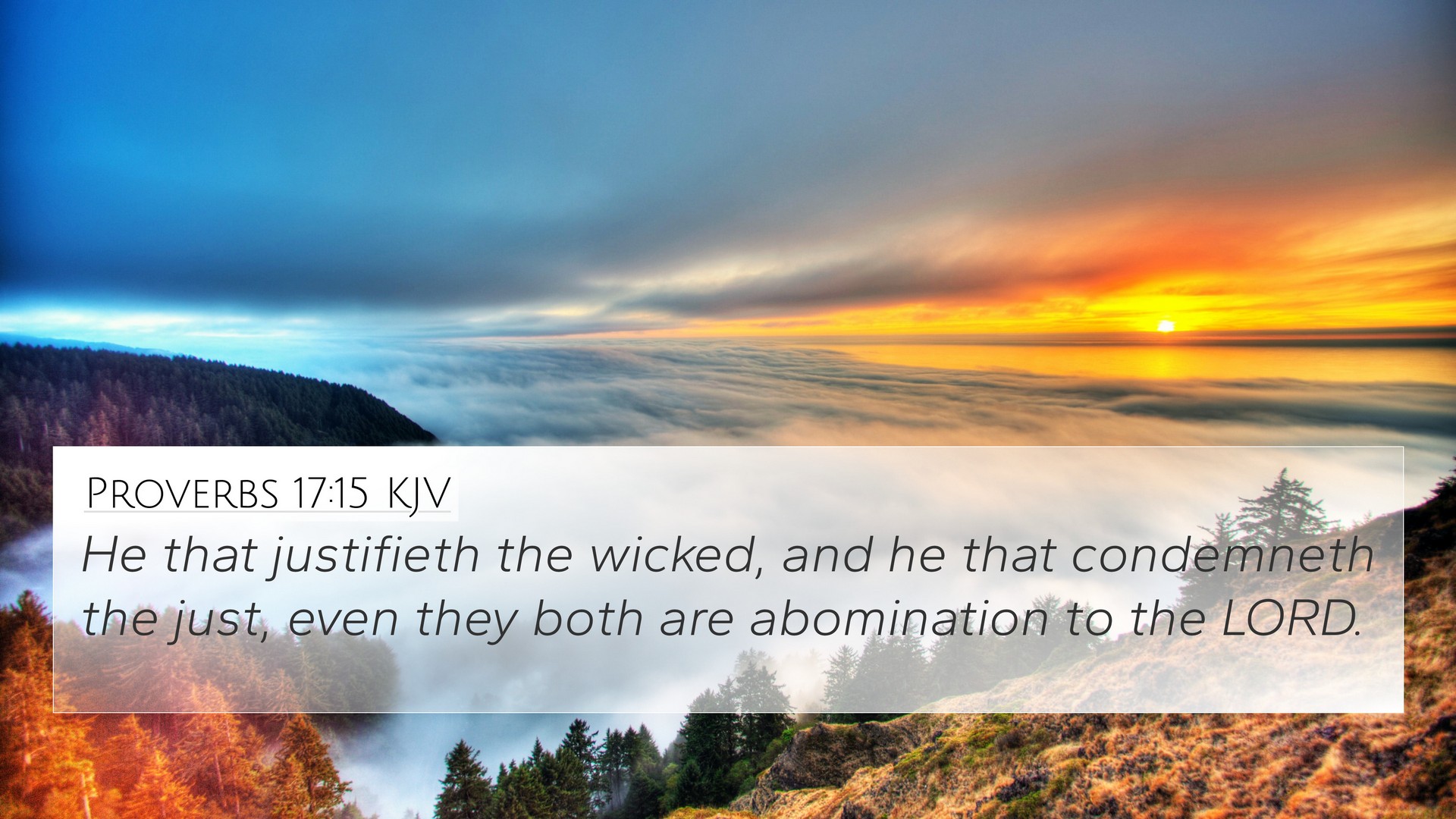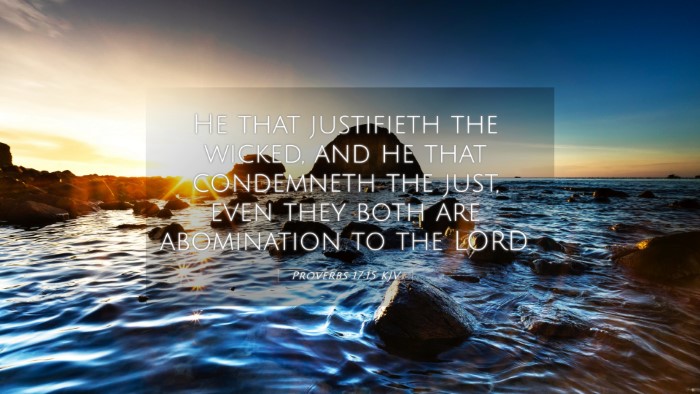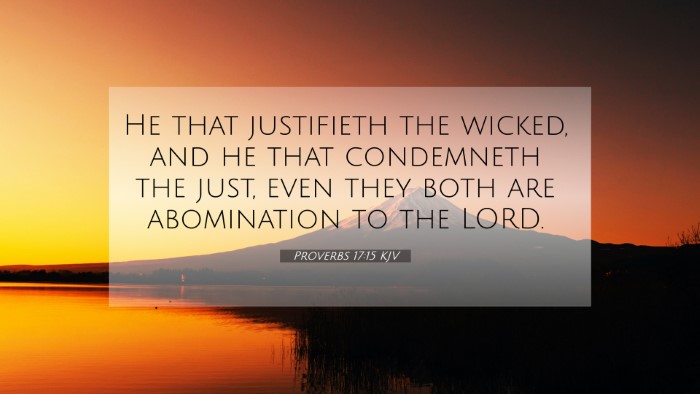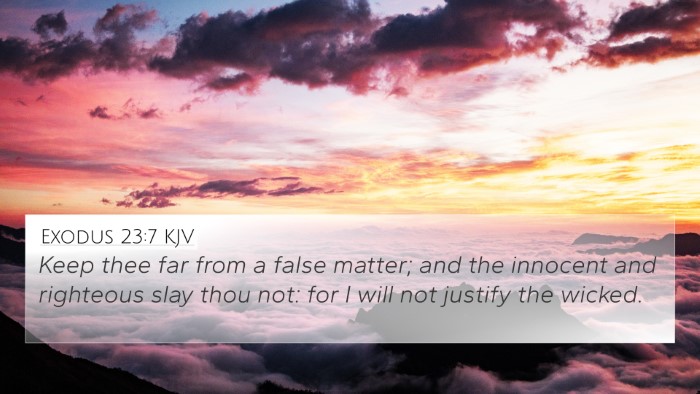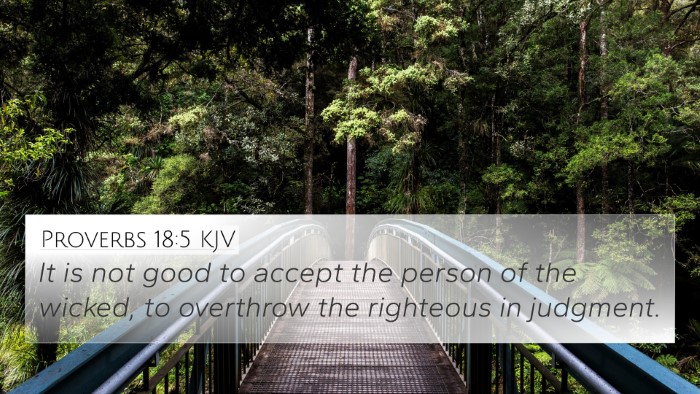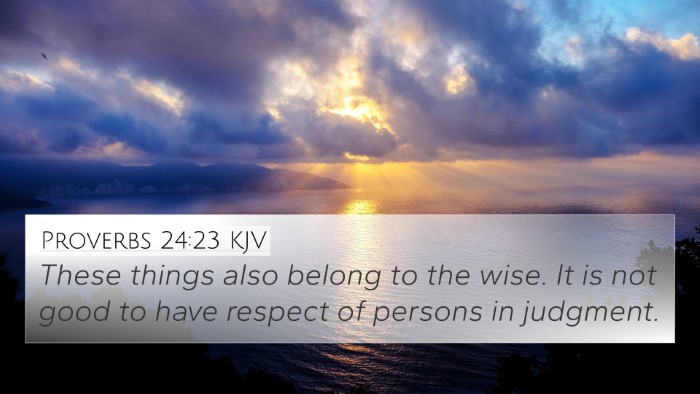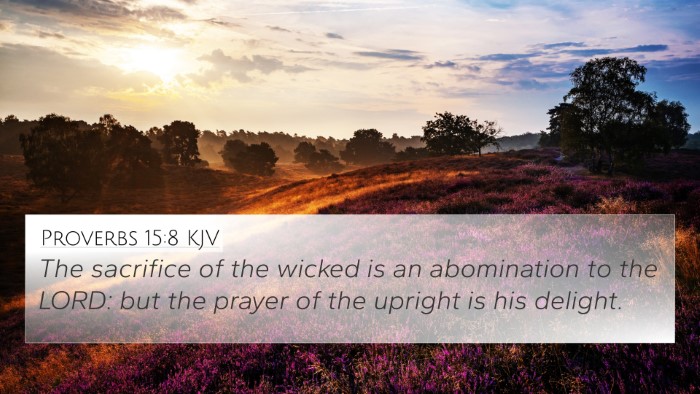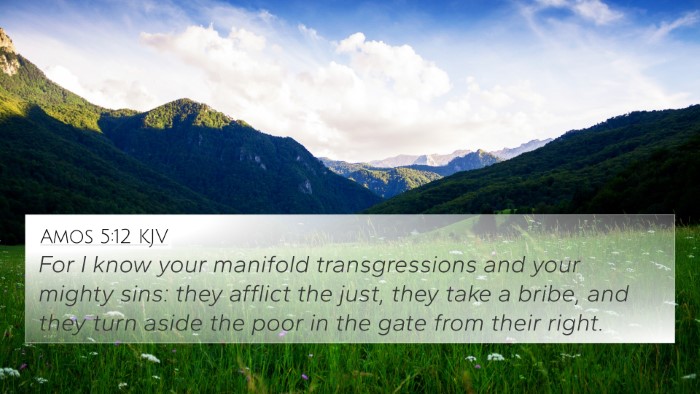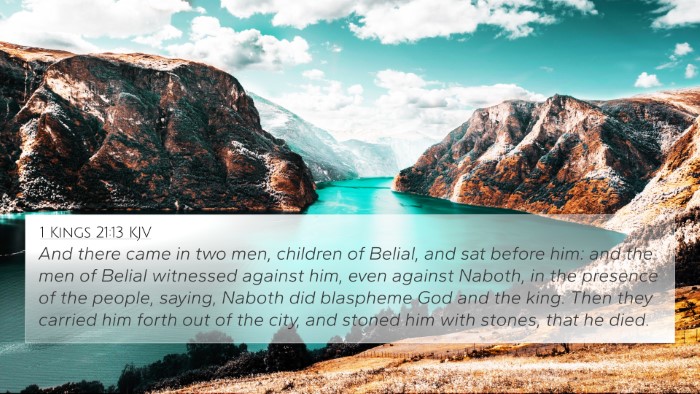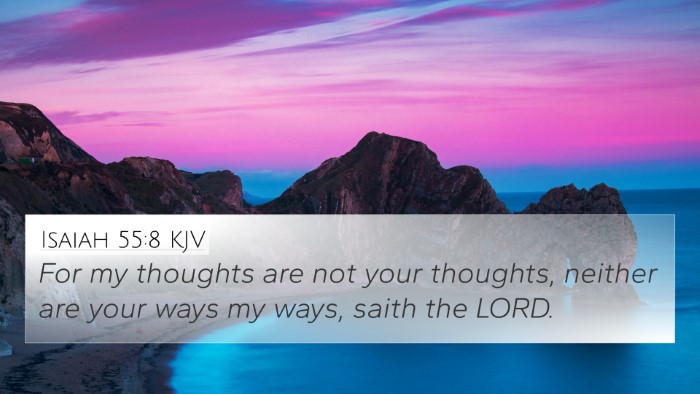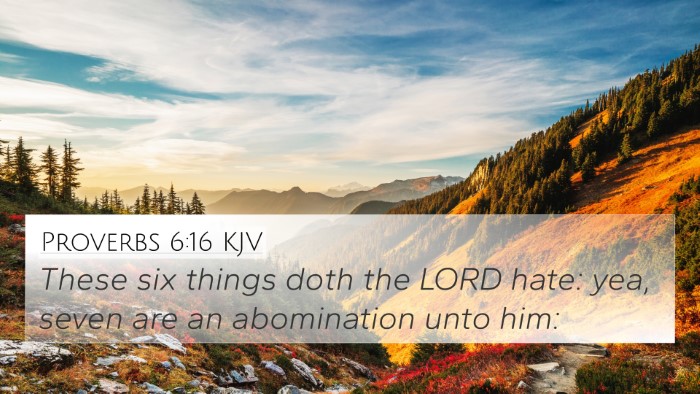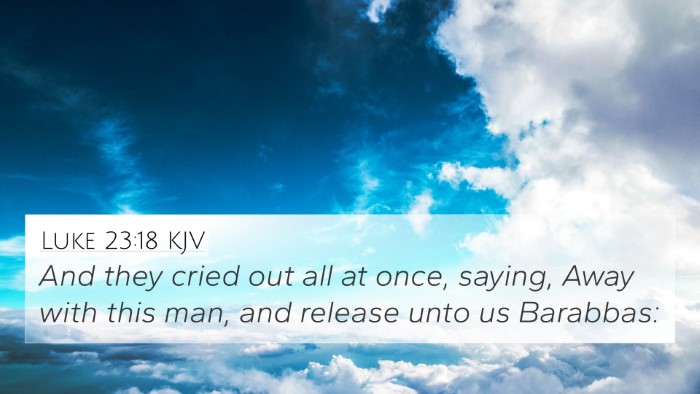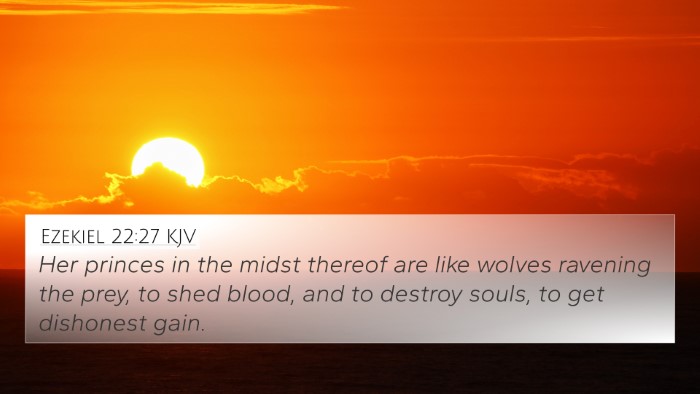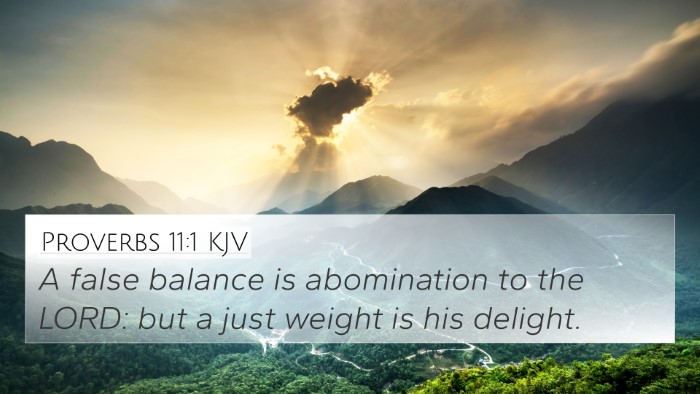Proverbs 17:15 - Understanding the Verse
Bible Verse: Proverbs 17:15 - "He who justifies the wicked and he who condemns the just, both of them alike are an abomination to the Lord."
Verse Meaning and Interpretation
This verse highlights the moral importance of justice and righteousness in God’s eyes. Both excusing the wrongdoer and condemning the innocent are seen as equally unacceptable to God. This sheds light on God’s character as a just judge, emphasizing the weight of moral integrity in social and legal judgments.
Insights from Public Domain Commentaries
Matthew Henry's Commentary
Henry expounds on this verse by emphasizing the virtue of justice. He notes that justifying the wicked is rooted in a deep moral corruption, resulting in God's disdain. This act represents a serious breach of social order. Similarly, condemning the just, which is often a distortion of truth, presents a grave injustice that God detests equally. In essence, Henry warns against the grave implications of moral failure in society and encourages a pursuit of true justice.
Albert Barnes' Notes
Barnes elaborates on the implications of this verse concerning both individuals and society. He explains that both actions—justifying the guilty and condemning the innocent—result in a breakdown of justice and trust in societal structures. Barnes stresses that society thrives on fairness and justice, and when these foundations are eroded, it becomes an abomination before God. Furthermore, he indicates that the phrase "alike are an abomination" serves as a strong indictment against corruption and highlights God’s commitment to justice.
Adam Clarke's Commentary
Clarke focuses on the judicial aspects of the verse, stating that God’s judicial system is perfectly just. He highlights the importance of integrity among judges and legal authorities. Clarke warns that when law courts endorse wickedness or persecute the innocent, they reflect a profound disrespect for divine law. According to Clarke, this verse serves as a reminder for leaders to maintain fidelity to the divine standard of justice.
Bible Cross-References for Proverbs 17:15
- Exodus 23:7: "Keep far from a false charge, and do not kill the innocent or the righteous, for I will not acquit the wicked." - This verse emphasizes the necessity of justice and the condemnation of wrongful behavior.
- Deuteronomy 25:1: "If there is a dispute between men and they go to court and the judges decide between them, acquitting the innocent and condemning the guilty." - Affirms the function of justice in society.
- Isaiah 5:20: "Woe to those who call evil good, and good evil; who put darkness for light, and light for darkness." - Recognizes the danger of moral corruption.
- Micah 6:8: "He has shown you, O man, what is good; and what does the Lord require of you but to do justly, to love mercy, and to walk humbly with your God?" - A directive for living a life of justice.
- Proverbs 6:16-19: "There are six things the Lord hates, seven that are detestable to him: haughty eyes, a lying tongue, hands that shed innocent blood..." - Affirms God's stance on injustice and falsehood.
- James 2:9: "But if you show favoritism, you sin and are convicted by the law as lawbreakers." - Highlights the principle of impartiality and justice.
- Psalm 82:3: "Defend the weak and the fatherless; uphold the cause of the poor and the oppressed." - Encourages the protection of the innocent and vulnerable.
Thematic Connections and Applications
This verse engages with themes of justice, integrity, and moral responsibility. In our modern context, it serves as a reminder of the importance of alignment with divine justice. It creates connections with various biblical texts that reinforce the principle that God values righteousness and equity both in personal actions and societal operations.
Tools for Bible Cross-Referencing
To explore further connections between Bible verses, one can utilize resources such as:
- Bible Concordance: A tool for finding specific verses related to terms and themes.
- Bible Cross-Reference Guide: Helps in locating verses that relate thematically.
- Comprehensive Bible Cross-Reference Materials: Offers in-depth links across biblical texts.
Conclusion
Proverbs 17:15 serves as a profound reminder of the nature of justice as God defines it. By engaging with public domain commentaries and exploring numerous related verses, one can develop a deeper understanding of divine expectations for humanity regarding justice. This understanding reinforces moral integrity and calls for a societal commitment to uphold righteousness, enhancing our collective approach towards holiness and justice in our communities.
